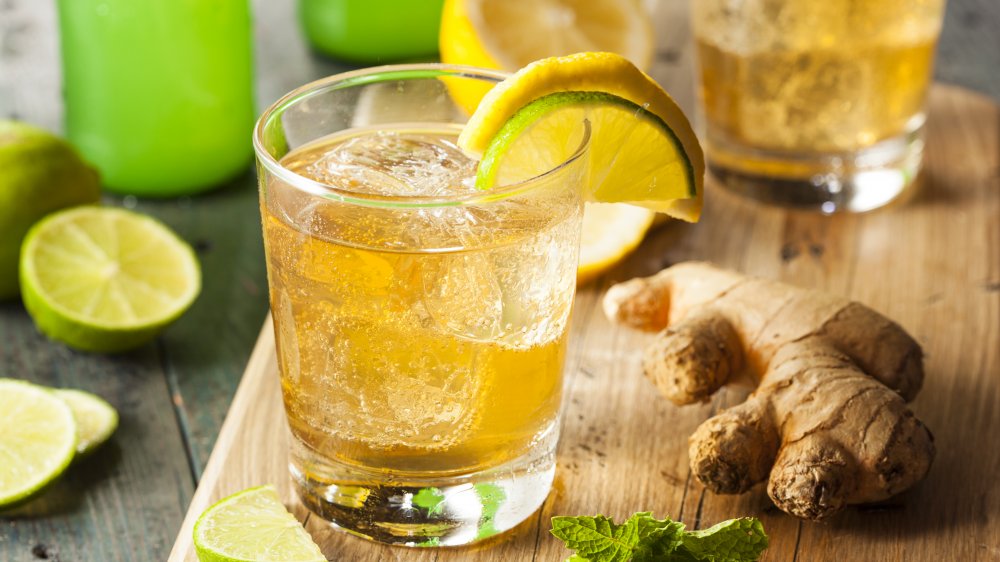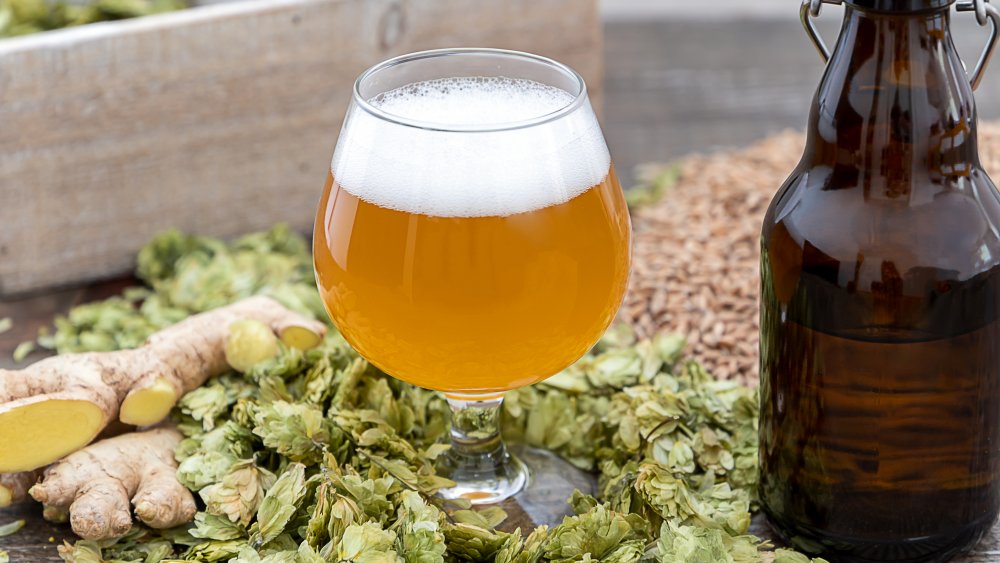Ginger Ale Vs Ginger Beer: Which Is Better For An Upset Stomach?
It's pretty well known that ginger can help ease an upset stomach. Ginger root in its has been shown to aid in digestion and help fight nausea, along with a host of other health benefits (via Healthline), and has been used as a healing agent for thousands of years. Nowadays you can find ginger in a variety of forms, but it does matter which type of ginger concoction you reach for next time your stomach feels off. Many people reach for ginger ale or ginger beer, but is one better for you than the other? The answer is complicated.
Let's start with the differences between the two. Per The Kitchn, ginger ale is a flavored carbonated drink that's usually put in the soda family. Ginger beer is a fermented beverage with a more intense flavor and less carbonation. Many people think it contains alcohol, but despite its name, that's not the case. What both ginger ale and ginger beer do have in common is a lot of added sugars. According to Livestrong, a 12-ounce serving of ginger ale contains 32 grams of sugar, the equivalent of 8 teaspoons. To put that in context, the American Heart Association says women should only have six teaspoons of sugar per day, and men should only have nine. A serving of ginger beer contains 40 grams of sugar. Speaking to Marie Claire, Dr. Gina Sam said all that sugar "feeds the bad bacteria in your GI tract, causing more bloating, gas, and indigestion."
Ginger beer may be the slightly better choice
Despite its high sugar content, there are two characteristics of ginger beer that may make it a slightly better choice for your upset stomach. For one, ginger beer tends to be slightly less carbonated than ginger ale. Doctors say carbonation in soda causes gas and can make stomach pains worse (via Livestrong). Secondly, ginger beer may offer some additional health benefits specifically due to its fermentation process. Healthline says fermentation encourages the growth of probiotics, which are bacteria that can aid the immune system, heart health, and digestion.
Furthermore, it's worth noting that some ginger ales may not live up to their names. In order to reap the full digestive benefits of ginger, one must actually consume real ginger. But some popular ginger ale brands might not actually contain any real ginger. The well-known brand Canada Dry faced a federal lawsuit in 2018 over the fact that it wasn't actually made with real ginger, despite the company's claims (via CBS News). Another big name brand, Schweppes, doesn't list ginger in the ingredients for its ginger ale. When in doubt, check the label for a specific mention of ginger extract.

